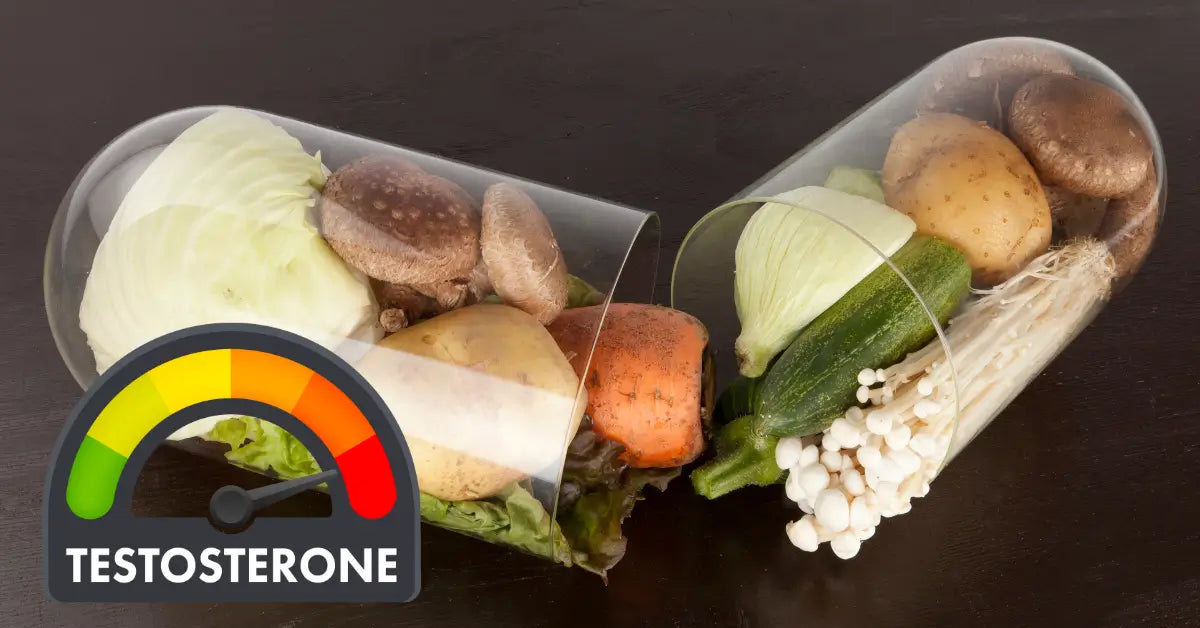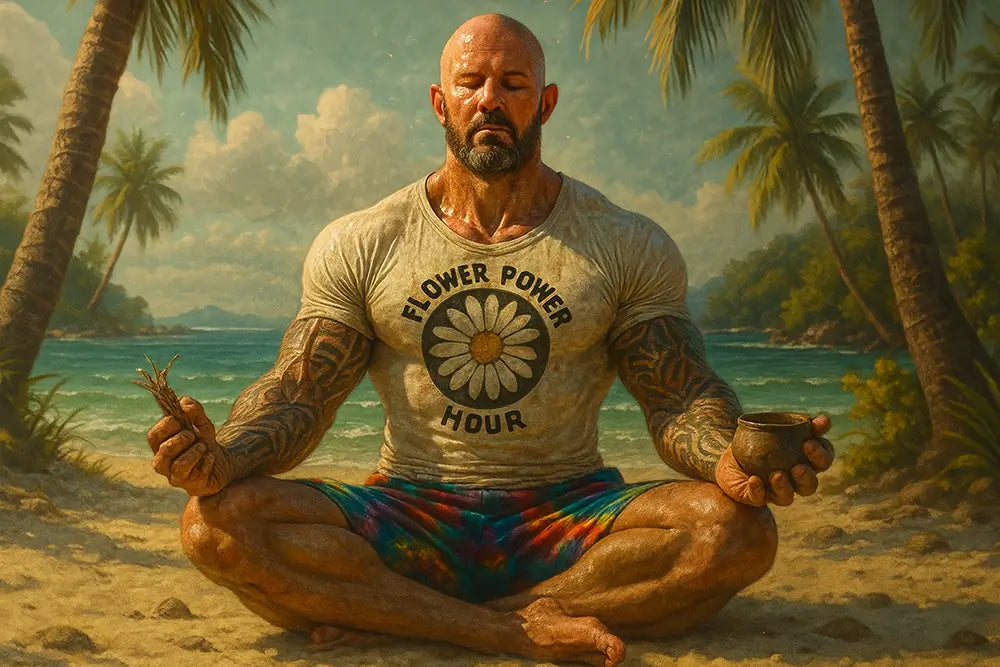Ever asked yourself what fuels those muscles, deepens the voice, and keeps the male spirit vibrant? The answer lies in the powerhouse hormone – testosterone! Want to boost testosterone naturally?
Well, Men and women primarily produce testosterone, a vital steroid hormone, in their testicles and ovaries, respectively. The adrenal glands also contribute small amounts of testosterone. In males, it is responsible for physical changes during puberty, such as muscle development, voice alterations, and hair growth.
Maintaining optimal testosterone levels is crucial throughout adulthood. In adult males, healthy testosterone levels contribute to general well-being, impacting disease risk and sexual function. Moreover, elevating testosterone to optimal levels may lead to increased muscle mass and strength. Yet many men are struggling with low testosterone levels, and more men than ever are deficient in this vital male hormone.
We’re here to help uncover the natural strategies for enhancing your testosterone levels. Let's discover how to boost testosterone naturally.
Types of Testosterone Booster
Natural vs. Synthetic Boosters
There is a basic difference between natural and synthetic testosterone boosters when researching the market.
Natural Testosterone Booster:
- Dietary Supplements: Natural supplements usually contain magnesium, vitamin D, and zinc, which are necessary to manufacture testosterone.
- Herbal Extracts: Research has examined the possibility of enhancing normal testosterone levels with herbs such as Nettle, Tribulus Terrestris, and Ashwagandha (all in our supplements)
- Healthy Lifestyle Practices: Regularly exercising, getting enough sleep, and reducing stress naturally contribute to maintaining optimal testosterone levels.
Synthetic Testosterone Booster:
These are often in the illegal format of steroids. If a doctor has diagnosed you with clinically low testosterone levels, they may offer Testosterone Replacement Therapy (TRT) as a treatment.
A lifelong therapy that involves injecting, applying patches, or gelling synthetic testosterone in a medical setting. This will turn off your own body's supply and requires a lifelong prescription - there are side effects that need careful consideration.
It is crucial to recognize the distinction between these two types of techniques, as natural methods focus on food and lifestyle changes while synthetic methods require medical intervention and professional oversight.
TRT does not obviously address any underlying lifestyle or diet issues driving low testosterone. Therefore there are considerable overall health and wellness benefits to finding out what is driving your levels to be low or deficient.
5 Ways to Boost Testosterone Naturally
- Exercise and Strength Training

A pivotal study in 2015, focusing on men grappling with obesity, unearthed a profound revelation — increased physical activity surpassed calorie restriction in its efficacy for enhancing testosterone levels.
Delving deeper into the nuances, the impact of exercise on testosterone isn't a one-size-fits-all scenario. A comprehensive literature review underscores the variability influenced by factors such as the nature of the exercise. The intensity of training is also a significant factor in this variability. Unveiling a particularly potent strategy, resistance training, particularly in the form of weightlifting, stands out as a short-term catalyst for boosting testosterone levels.
Adding another dimension to the spectrum, the merits of High-Intensity Interval Training (HIIT) become apparent. While various exercise modalities show efficacy to some extent, the dynamic nature of HIIT underscores its effectiveness. It highlights its role in the pursuit of heightened testosterone levels.
- The Magnesium Boost from Leafy Greens

In the journey to boost testosterone naturally, leafy green vegetables emerge as unsung heroes, providing many benefits. Among their many virtues, these greens harbor significance for testosterone levels – magnesium. The interplay between magnesium and testosterone takes center stage, as evidenced by a study published in the International Journal of Endocrinology (2014) (Maggio et al., 2014).
Research suggests a potential link between magnesium deficiency and testosterone deficiency. A recent study on Taiwanese men (2021) found that a diet lacking leafy greens, beans, and legumes was associated with lower testosterone levels and decreased sperm concentration. Notably, an older study showcased the positive impact of magnesium supplementation on testosterone levels.Individuals who engaged in regular exercise observed more pronounced benefits.
Scientists suggest that magnesium may affect testosterone synthesis because of its ability to reduce oxidative stress, while the precise mechanisms underlying this association are still being investigated. Including nutrient-dense foods such as collard greens, spinach, kale, beans, nuts, and seeds is essential. It will raise your magnesium consumption in your diet. Regarding diet, people consider leafy greens as strong advocates for general health and helpful partners.
- Redefining Nutrition with Red Meat
To boost testosterone naturally, red meat emerges as a nutritional powerhouse, notably due to its zinc-rich composition. Zinc, a crucial mineral abundant in red meat, supports the body's natural testosterone production. The high protein content in red meat further contributes to muscle building—a correlation observed to align with increased testosterone levels in both men and women.
While protein is often touted for its positive influence on testosterone, a delicate balance is key. Contrary to the belief that excessively high protein diets enhance testosterone, nuanced findings suggest that well-managed high and moderate-protein diets may have negligible effects on testosterone levels.
Yet, amidst these nutritional benefits, a prudent approach is essential. Moderating red meat intake is advisable to manage potential health risks. Diversifying zinc sources, such as incorporating fatty fish and shellfish, contributes to a balanced diet.
Navigating this nutritional terrain wisely involves moderating red meat intake. Diversifying zinc sources, such as incorporating alternatives like fatty fish and shellfish, is advisable for a balanced diet. Striking this balance ensures a holistic approach to testosterone optimization, aligning to boost testosterone naturally.
- Power of Vitamin D
Vitamin D emerges as a micronutrient with multifaceted significance. Despite its crucial role, a staggering 1 billion people worldwide grapple with vitamin D deficiency, emphasizing the need to amplify its intake.
Recent research has revealed a potential correlation between low vitamin D and low testosterone. This sheds light on the complex relationship between micronutrition and hormonal health. A remarkable 2017 study with 102 vitamin D-deficient men showed a significant link. Highlighting the potential advantages of vitamin D supplementation, individuals who took the supplement experienced higher testosterone levels. Furthermore, the supplement demonstrated an improvement in erectile dysfunction. But it's important to recognize the subtleties because contradictory findings from other research call for more investigation.
Nurturing optimal vitamin D levels can be achieved through strategic exposure to sunlight. It’s also beneficial to supplement. Vitamin D (and Zinc and magnesium) is included in optimal doses in DNA’s testosterone boosters.
- Role of Quality Sleep
The importance of good sleep harmonizes with diet and exercise, creating a trifecta for boosting testosterone naturally. The influence of sleep quality on testosterone levels is a fascinating revelation. This connection is underscored by a study involving 2,295 teenage boys and men. This research suggests a potential link between impaired sleep and reduced testosterone levels.
While the ideal amount of sleep varies among individuals, a compelling 2011 study adds weight to the importance of sufficient sleep. Sleeping only 5 hours per night was associated with a notable 10%–15% reduction in testosterone levels, highlighting the profound impact of sleep duration on hormonal balance. Intriguingly, research involving older men unveils a delicate balance, indicating that an increased sleep duration of up to 9.9 hours correlates with heightened testosterone levels. However, exceeding 9.9 hours of sleep is linked to decreased testosterone levels.
While individual sleep needs may differ, the consensus in research aligns with a recommendation of at least 7 hours of sleep per night for optimal hormonal health. In prioritizing restful, high-quality sleep, we embark on a crucial journey toward revitalizing testosterone and fortifying overall health.
Wrapping Up!
Testosterone levels naturally decline as men age, presenting a potential roadblock to optimal health. The peak at 19 years becomes a gentle descent, with an average annual decline of 1%–2% after hitting 30 or for those with poor lifestyles, this can happen from your 20’s.
However, proactive steps can be taken to counteract this decline.
Adopting a nutritious diet and embracing the holistic lifestyle tips outlined above can play a pivotal role in boosting testosterone naturally. After all, these are the fundamental pillars that underscore male longevity, resilience, and enduring strength—a roadmap to unlocking the secrets of natural testosterone enhancement.
The more natural you go, the safer your journey is!
Check our range of natural testosterone supplements that help men through each age - and stage - of testosterone decline.






Share:
Why you're half the man your father was.
Every day Pharmaceuticals that devastate testosterone levels.